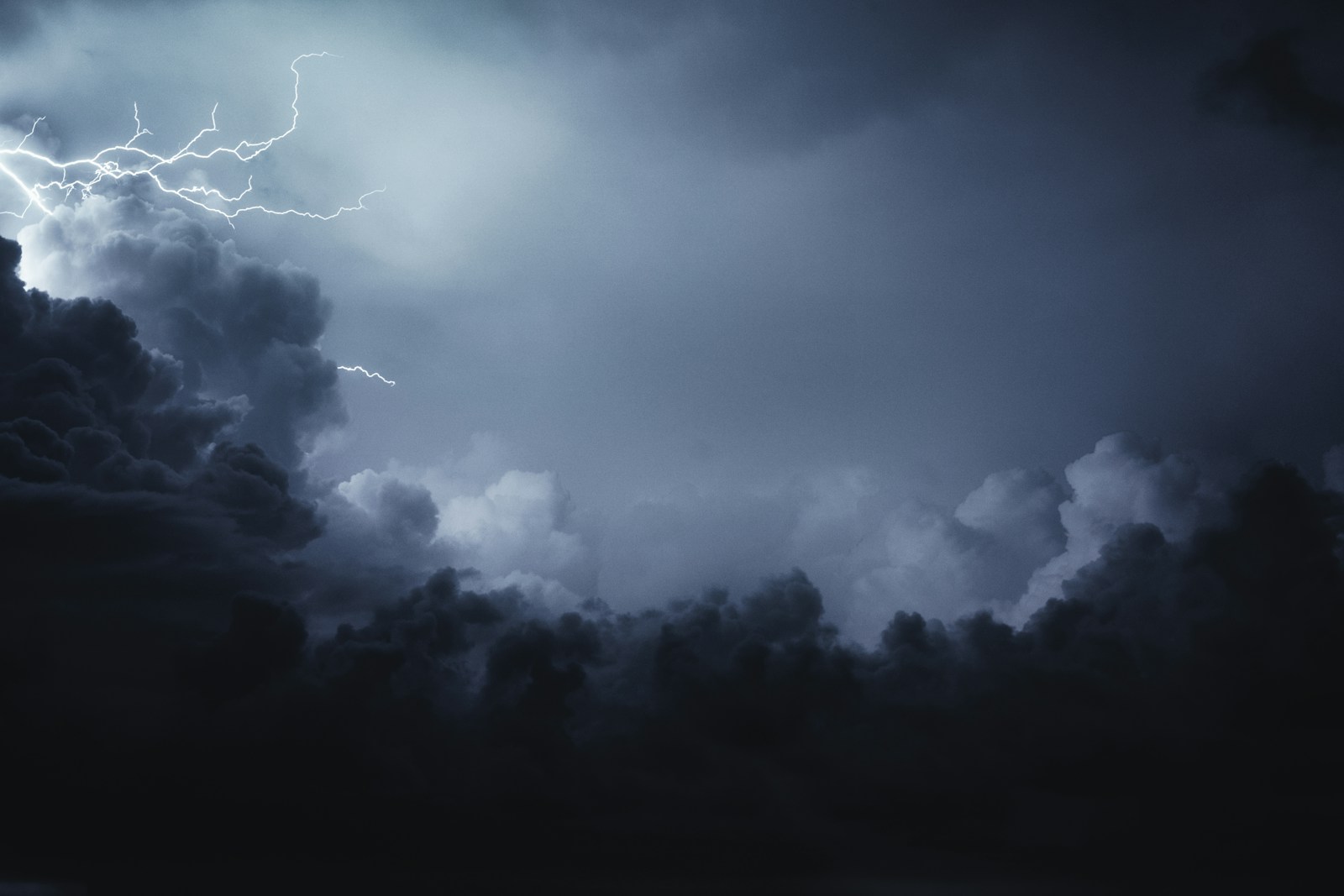
relámpago

Lightning
The Spanish word 'relámpago' translates into English as 'lightning'. This term is used to describe the natural phenomenon characterized by a sudden and brief period of intense light that illuminates the sky, often accompanied by a loud noise or 'thunder', caused by an electrical discharge from the atmosphere.
Example sentences using: relámpago
El relámpago iluminó el cielo oscuro.

The lightning lit up the dark sky.
This sentence describes a common occurrence during a storm, where the abrupt flash of light from a lightning bolt brightens a darkened sky.
Corre, el relámpago está muy cerca.

Run, the lightning is very close.
In this sentence, the speaker is warning the listener that the lightning is too close for comfort, urging them to quickly seek shelter.
Un relámpago rompió la quietud de la noche.

A lightning bolt broke the stillness of the night.
This sentence indicates a sudden disturbance, caused by a flash of lightning, interrupting the tranquility of the evening.
El relámpago precede al trueno.

The lightning precedes the thunder.
This sentence references the scientific fact that light travels faster than sound, which is why we see lightning before we hear thunder.
Nos protegemos del relámpago en la casa.

We take shelter from the lightning in the house.
This sentence indicates the natural precautionary tactic of seeking shelter indoors in order to avoid being struck by lightning.
El relámpago dejó sin electricidad al pueblo.

The lightning left the village without electricity.
This phrase explains the aftermath of a lightning strike, which can often cause power outages in the areas it affects.
El relámpago partió el árbol por la mitad.

The lightning split the tree in half.
This phrase describes the considerable force of a lightning strike, enough to split a tree down the middle.
El perro le tiene miedo al relámpago.

The dog is afraid of lightning.
This sentence expresses a common fear amongst animals, who are often startled by the loud noises and bright flashes accompanying a thunderstorm.
Podemos ver un relámpago en la distancia.

We can see a lightning bolt in the distance.
This sentence suggests a far-off storm, the lightning from which can be observed from a safe distance.
El relámpago cae en la cima del monte.

The lightning strikes on the mountain peak.
This phrase describes a lightning strike hitting a high point, such as a mountaintop, a common occurrence due to the natural path of electricity towards the ground.